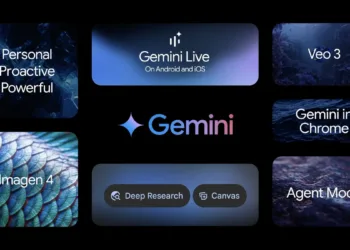Samsung’s groundbreaking 1nm chip development targets 2029 mass production. Discover the technological leap that could reshape the semiconductor industry.
Table of Contents

Samsung’s 1nm Chip: Pushing the Boundaries of Semiconductor Innovation
In the high-stakes world of semiconductor technology, Samsung is preparing to rewrite the rulebook with its ambitious 1nm chip development program. This isn’t just another incremental upgrade—it’s a technological moonshot that could define the next decade of computing.
The 1nm Milestone: What Makes It Special?
Samsung’s 1nm process, internally dubbed the “dream semiconductor process,” represents a quantum leap in chip manufacturing:
| Key Development | Details |
|---|---|
| Mass Production Target | 2029 |
| Development Status | Dedicated team formed |
| Key Technology | High-NA EUV exposure equipment |
| Competitive Landscape | Ahead of TSMC’s 1.4nm plans |
The Technical Challenge: Breaking Nanoscale Barriers
Developing a 1nm process is no small feat. Samsung faces multiple challenges:
- Precision Engineering: Manipulating transistors at near-atomic scales
- High-NA EUV Equipment: Specialized exposure tools not yet acquired
- Yield Optimization: Improving production efficiency beyond current limitations

Industry Context: The Race for Smaller Chips
The semiconductor landscape is intensely competitive:
- TSMC aims to reach 1.6nm (A16 node) by 2027
- Samsung’s 1nm could provide a critical technological lead
- Potential applications in AI, high-performance computing, and next-generation devices
Yield and Production: The Real-World Challenges
Samsung’s recent chip development history reveals critical insights:
- 3nm process yields initially stood at 30%
- Gradual improvements expected with 2nm and 1nm technologies
- Potential production challenges anticipated before 2029

Strategic Implications: Beyond Just Smaller Chips
Samsung’s 1nm development isn’t just about size—it’s about:
- Reducing power consumption
- Increasing computational density
- Enabling more advanced AI and computing technologies
FAQs: Understanding Samsung’s 1nm Chip Journey
Q: When will 1nm chips be commercially available?
A: Mass production is targeted for 2029, with potential early prototypes before that.
Q: How significant is the 1nm breakthrough?
A: It could provide a 10-20% performance improvement over 2nm technologies.
Q: Are 1nm chips really 1 nanometer?
A: The term is more of a marketing designation than a precise measurement.
Q: Who are Samsung’s main competitors in this space?
A: TSMC and Rapidus are also developing advanced process nodes.
Q: What technologies will benefit most from 1nm chips?
A: AI, high-performance computing, advanced mobile devices, and potentially autonomous systems.
The Road Ahead: Samsung’s Semiconductor Vision
Samsung is playing a long game in semiconductor technology. By forming a dedicated 1nm development team and setting an ambitious 2029 mass production target, the company signals its commitment to pushing technological boundaries.
The journey to 1nm is more than a technical challenge—it’s a testament to human innovation, showing how we continually redefine what’s possible in technology.








